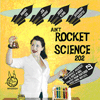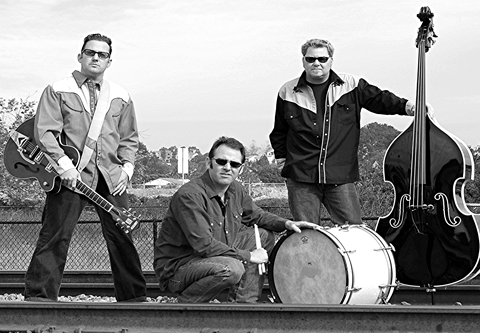Written by Lee Hazlewood
Lee Hazlewood first considered to record this song but finally gave it to Nancy Sinatra who recorded it in 1966.
While on tour in Australia in March 1991, the Stray Cats stopped by W-Club/Triple J Studios in Perth, Australia and did a live appearance on the “Live On The Wireless”. It was later aired on March 20th 1991.
Slick 49 – Go Wild With Me
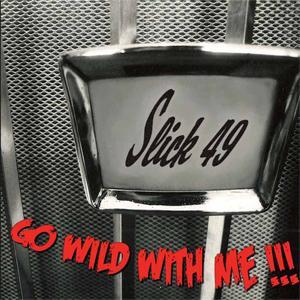
Go Wild with Me / Got Rockin’ On My Mind / Cattin’ Baby /The Stars Don’t Look So Bright / Jumpin’ Round / Prove You Wrong and Do You Right / ’41 Dodge / Riverside Jump / Shake ’em Up Rock / Sweet Rockin’ Baby / Still I’m Gonna Love You / Don’t Shoot Me Baby / All That’s On My Mind / Tear This World Apart / Hot Headed Mama.
Slick 49 are a classic drummer less rockabilly trio with a sound as authentic as you can dream. The pair made by the acoustic guitar and the slap bass lays down a strong rhythmic giving lead guitarist Nigel Mc Corkell plenty of room to express. It’s obvious that these guys have listened to Charlie Feathers (notably on the hiccupy Still I’m Gonna Love You) and most generally to the Meteor label (Bill Bowen’s Don’t Shoot Me Baby).
Slightly different is “Tear This World Apart” that sounds more modern, even neo-rockabilly at places. But different doesn’t mean bad though maybe a question / answer backing vocals would have added something to the tune.
Globally, I wouldn’t use the word “wild” to describe them but tense, always menacing to explode. All in all with eleven original songs and only four covers, Go Wild With Me makes an excellent debut album and as usual you have the Western Star quality in term of production and sound.
Fred “Virgil” Turgis
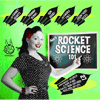 Wild Hare Records WH06001- WH06004
Wild Hare Records WH06001- WH06004
Vol.1 : 1 Scotch Whisky 2 Gypsy Eyes 3 Minnesota Snow 4 Through With You 5 Red Lipstick on Cigarettes 6 Big Wheels Roll 7 Dear Old Dad 8 Crazy About Nancy 9 Doorbell Dreamboat 10 Buried Hopes 11 Cool It 12 Blue So Blue 13 Lovesick 14 I Want You 15 Its All Life 16 Live This Way 17 Tell Me Darlin 18 Honey Honey 19 Wined and Dined and Pocket Lined 20 Mrs Jackson 21 Why Cant You Be True 22 24 Hours a Day 23 So Untrue 24 Cant Keep My MInd Off Of You 25 Just Take Me Home 26 Feels So Good 27 Catch My Breath
Vol. 2 : 1.We’re Gonna Rock 2 Devil Doll 3 Let Me Be Your Baby 4 Let’s Rock 5 Give a Little Lovin’ 6 Have a Ball 7 Uptown 8 I’m Gonna Break a Heart 9 Epilepsy Betsy 10 What I’ve Got 11 Trouble Follows Me 12 Lonesome Trail 13 Hitch Hiker 14 Long Haul Trucker 15 Last Work In Lovin’ 16 Real Live Doll 17 Operation Complication 18 Slim Jim Sadie 19 Break Loose 20 Jambalaya 21 A Single Tear 22 My Puddin’ Pie 23 Loud Mouth 24 Midnight Train 25 My Love 26 I’d Want Your LOvin’ Anyway 27 Don’t Talk Back
If you are turtle, don’t try to catch this Wild Hare cause he’s running fast and .he ‘s got a double mission : “to help promote historic artists as well as promising new artists involved in the Rockabilly and Hillbilly Circuit”. Since Dave and Kiersten Moore founded in 2003 this label “of Rockabillies for Rockabillies”, they recorded historic talent such as Pat Cupp, Roc LaRue Ron Berry and Joe Penny, both present on this two “Ain’t Rocket Science” first class compilations but also new talents such as The Garnet Hearts, Thommy Burns,Jason Hoss Hicks, Amber Lee, Jerry King, Screamin’ Scotty and many more.
As announced by the owners of the label “no big city attitutes or corporate schemes here”, no “rocket science” “no tracking, no overdubs” but for sure some good ol homebrew rockabilly chemistry concocted by an ever-present Dave Moore (engineer, guitarist and member of the The Saddle Pals)
The 101 is a blend of smooth honky tonkin’ rockabilly sounds (The Saddle Pals) with some raw hillbilly songs as the ones composed by the 20’s and 30’s inspired Thommy Burns hepcat There ‘s even some Sun soundin’ with the veteran Ron Berry (listen to “It’s All Life” that could come right from the fifties Union Avenue studio) and the Steubenville Knight Jason Hicks “close to the Sun Elvis bone” melodic rockabilly
On 102 the starting mood is more on the rockin’ and rollin’ side with the terrific Amber Lee. That gal sure knows how to rock.! Jerry King and his assured strong voice that we already know with his Rivertown Ramblers is here with The Falls City Boys on a more hillbilly repertoire and sounds like an american Jack Baymoore. The legendary Hank Williams sideman Joe Penny sincere and true rockabilly is tremendous; “Real Live DollI” is a “real live masterpiece” and his Jambalaya rendition sounds like a real early fifties Cajun one popped up from the past. Screamin’ Scotty ends up brilliantly and frenetically this second compilation with a great “Don’t Talk Back” rocker.
Dave “Long Tall” Phisel
Buzz Campbell
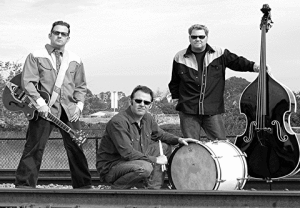 It all began with a borrowed guitar and a little band from Massapequa, New York.
It all began with a borrowed guitar and a little band from Massapequa, New York.
Buzz Campbell seemed to be leading a normal life. He was attending college, had a girlfriend; even played a little guitar in his spare time. On his 21st birthday, Buzz’s life would take a detour down a different road.
“My girlfriend decided to take me to see the Stray Cats on my birthday,” Buzz began. “I never heard such a huge, rockin’ sound coming from just three guys. Brian Setzer was amazing. I dropped out of college the next day and decided to pursue playing music.”
And pursue it he has. As a longtime member of Hot Rod Lincoln, Buzz Campbell had become a mainstay on the California rockabilly scene; as the Gretsch-wielding guitarist for the legendary group, Sha Na Na, and Stray Cats bassist Lee Rocker, Buzz has been allowed the opportunity to take his music—and Hot Rod Lincoln—to the international stage. I spoke with the HRL front man shortly after his multiple appearances in Green Bay, Wisconsin at this year’s Rockin’ 50s Fest. Buzz handled his usual guitar duties for Lee Rocker, played a show with Hot Rod Lincoln, and joined Rocker and fellow Stray Cat, Slim Jim Phantom, for an unscheduled performance of classic Cats tunes.
And it all began with a borrowed guitar and a little band from Massapequa, New York.
by Denise Daliege-Pierce
When did you first begin playing guitar?
Buzz Campbell I picked up the guitar in second grade and learned a few chords, then I kind of lost interest. My brother wanted to play guitar a few years later, and bought an acoustic. When there was a guitar in the house again, I found myself picking it up and learning songs. In high school, a friend of mine started showing me how to play lead guitar and a lot of old rock ‘n’ roll songs. I really took to that. I was also very shy when I was younger and couldn’t talk to girls to save my life. When I played guitar at parties, I got more attention from the girls and found that, if I played music, I didn’t have to talk so much.
Who are some of your biggest musical influences?
Buzz Campbell Chuck Berry was my first real influence. I loved his approach on that blues-based rock ‘n’ roll. Later, I got hip to more rockabilly guys, like Carl Perkins, Cliff Gallup, Scotty Moore and James Burton. In my late teens, the music and the style—i.e. clothes, cars, etcetera—had really become a part of my everyday life, but I didn’t discover there was a “rockabilly scene” until I turned 21. Brian [Setzer] had to be my biggest influence. I really took a leap of faith and dove into music after hearing him with the Stray Cats.
How was Hot Rod Lincoln formed?
Buzz Campbell I was looking for a couple of guys to start jamming with and, at the time, I worked in a warehouse with a lot of people. Someone told me that this guy played bass. It was then that I was introduced to Johnny G. I told him of my vision of starting a band that did only old rock ‘n’ roll and rockabilly. He was into the idea and picked up an upright bass shortly after we got the group going.
Did the name “Hot Rod Lincoln” come from the Commander Cody and His Lost Planet Airmen song?
Buzz Campbell Yes, it did. I had a rockabilly compilation CD with a bunch of stuff on it. Commander Cody’s cover of “Hot Rod Lincoln” was on it. I was reading the song titles with Johnny, and my roommate at the time mentioned that he thought “Hot Rod Lincoln” would be a good band name. He wasn’t too hip to what we were doing, but was always full of advice…so, we blew him off. The next day, Johnny called me, and we both thought he was right…hence, we became Hot Rod Lincoln.
I understand that Lee Rocker produced your 1997 album, Blue Café. How did that collaboration come about?
Buzz Campbell Lee and HRL go much further back than that. I met Lee when HRL opened up for his new project, Big Blue, in 1991. He liked what we were doing, and recognized the Stray Cats influence and neo edge that we were going for. We asked him to produce our first release, and he said yes. We recorded Hot Rod Lincoln, our first album, with Lee in the producer’s chair later that year. We kept in touch from then on, opened for his group here and there, and finally asked him to produce our third CD around 1997. Around this time, I had also become friends with my guitar influence, Brian Setzer. We had met at the NAMM [National Association of Music Makers] show in L.A. some years earlier at the Gretsch guitar booth, and I gave him a copy of the first CD and told him that Lee produced it. He was in San Diego, playing some of his early shows with his orchestra, and happened into a bar that I was working at that night. When he saw that it was us, he hung out all night, jammed, and got pretty drunk. I offered to let him and his wife stay with me in my little apartment and, to my surprise, they said yes. About a week later, Brian called and said he had written me a song called “Blue Café”; hence, the title track for the new CD was born.
You mentioned that you’ve been a Stray Cats fan for quite some time. How did it feel when you first began performing as a member of Lee Rocker’s band?
Buzz Campbell That’s a good question. I was very honored when Lee called and asked me to join his group. I had been friends with Lee for almost 15 years. It felt really great to know that I had advanced from just a kid trying to emulate Lee’s music to being on his level of playing ability. Plus, we had been friends for a long time, and I always enjoyed him working on my projects. I figured it would be just as fun working on his.
I’m sure that being on stage with Lee has led to the inevitable comparisons to Brian Setzer and former Rocker guitarist, Tara Novick.
Buzz Campbell Honestly, I don’t think about it much. I thought Tara was a great guitarist and did a fantastic job with Lee, but I always thought that I was a better fit. Stylistically, I was coming from a much closer place that Lee was originally from. Brophy Dale, Lee’s other guitarist, represents some of Lee’s other influences. Together, I think, it’s a great combination. As far as people comparing me to Brian Setzer, everyone knows there’s only one Brian; he’s incredible. Occasionally, people will say, “You sound like Brian” or “I can hear a lot of Brian in your playing”. I always take that as a compliment. I love his playing. Brian once came out and saw me with The Bastard Sons of Johnny Cash, a country-roots band I was working with a couple of years ago. He complimented my playing. I jokingly told him that I got all my cool licks from him. He told me, very seriously, that he heard my own style and many other influences in my playing. That was a great compliment. I believe that, as a guitarist, you have to take from your influences, then develop your own sound. I have tried, throughout the years, to improvise more and come up with my own chops and my own sound. I don’t want to sound like Tara Novick or Brian Setzer; I want to sound like Buzz Campbell.
How did you become a member of Sha Na Na?
Buzz Campbell I toured with Sha Na Na for three years before Lee picked me up. The original drummer, Jocko Marcellino, lived in town and was looking for a guitar replacement for the band. He came by to see me perform at a small, in-town gig. He returned a couple of weeks later with Screamin’ Scott Simon, Sha Na Na’s piano man for the last 30 some-odd years, and they offered me a gig that night. I did a show with them in Vancouver, Canada, and was offered a permanent spot shortly thereafter.
What was your experience with the group like?
Buzz Campbell I learned a lot from Sha Na Na. I had never played with a group that came out with so much energy. Every night, it was 120 percent. I learned about being a better entertainer, and that pleasing the crowd should be your number one objective when doing a live performance. I have a lot of respect for those guys. They have been together almost as long as the Rolling Stones. They did the Woodstock festival with Jimi Hendrix in 1969, the movie Grease, and their own TV show, from 1975 to 1981. What other group can claim that on their resume? They are a wonderful bunch of guys.
How many guitars do you own? Do you have a preference for using a particular one onstage?
Buzz Campbell Believe it or not, I don’t have a lot of guitars. I have always been a Gretsch guy. On all the Hot Rod Lincoln albums and Lee’s Racin’ the Devil record, I used my 1958 Gretsch Country Club. It has a fantastic sound and real mojo to it. Live, I like to use my reliable reissue Gretsches. I have an early ‘90s red Gretsch Hot Rod that I have used for the past eight years. Thanks to a Gretsch endorsement, I just got a 1997 6136 Gretsch White Falcon. I put TV Jones PowerTron Pickups in it, and it’s become my favorite guitar. I also have an old Gibson acoustic that I write music with…how many is that? Four guitars. That’s all.
What are your feelings regarding psychobilly? Do you think that it is helping or hindering the rockabilly genre?
Buzz Campbell Psychobilly is great. It has introduced a younger generation to the music and, eventually, young psychobilly fans do their homework and learn about where the music came from. This helps all of rockabilly/neo-rockabilly/western swing bands get some more attention from a younger audience. I think it is the natural progression of things. In the ‘80s, there was the neo-billy sound, and this got many young people to rediscover Gene Vincent, Eddie Cochran, etcetera. Now there’s psychobilly, maybe some of these young fans will rediscover us.
Do you have any favorite contemporary rockabilly musicians?
Buzz Campbell I like a lot of contemporary stuff. I’m a huge fan of James Intveld; saw many a Big Sandy show. Levi Dexter looks not a day older than he did in 1979, and still bops better than ever; always loved the Rockats. I guess you could say I lean more toward the neo-sounding stuff, but I like a lot of traditional stuff, too. I dig the Vargas Brothers out of L.A. Deke Dickerson has always been great, and is a fantastic guitarist.
Initially, your group was simply known as “Hot Rod Lincoln”. Why the change to “Buzz Campbell & Hot Rod Lincoln”?
Buzz Campbell Two reasons made me decide to make the change. The original bass player, Johnny G., left the group, and I am now the only remaining original member. When I started working with the Lee Rocker band, the name “Buzz Campbell” began to gain a lot of recognition and exposure all over the world. Lee’s fans would ask me if I worked with anyone else; I would say, “Hot Rod Lincoln”. A lot of them knew the group; some didn’t. I decided to make the connection easier for them and, therefore, help promote my own project, as well as my name.
Do you find it difficult to divide your time between your HRL and Lee Rocker gigs?
Buzz Campbell At times, it can be difficult to try and organize shows for HRL without interfering with the Lee Rocker band. More times than not, the two help promote each other. I enjoy being able to go out as just a guitarist and work with Lee. On the other hand, I love going back to HRL after being out with Lee and doing my own thing. The two bands keep it interesting for me. I can go on a tour with Lee and watch the HRL website get hits from all the cities we hit. It works out great to help promote my own thing without interfering with the other.
How do you balance the two projects?
Buzz Campbell How do I balance the two? Don’t sleep.
Your latest album with Hot Rod Lincoln, Runaway Girl, is a combination of rockabilly, country and swing, and showcases your ability as a songwriter. What are your thoughts regarding the disc?
Buzz Campbell Runaway Girl definitely focused more on songs and writing than anything else. It was the first disc that I was able to have complete creative control over since the bassist left the group. I enjoyed making it and am happy with the result, but am looking forward to the next disc, where I will narrow down the influences a bit and try to do more of a straight up rock ‘n’ roll/rockabilly album. I am very excited about it. We will record most of it live to capture our energetic, three-piece sound. It will be less about getting it perfect and more about raw energy.
Have you received feedback from any of the Stray Cats regarding HRL’s rendition of “18 Miles to Memphis”?
Buzz Campbell I played it for Lee in the tour bus. He said he liked it a lot. I got to back [Stray Cats drummer] Slim Jim [Phantom] and Lee Rocker at the Green Bay ‘50s Fest this May. Bo Diddley cancelled, so they asked Jim and Lee to fill the slot with a Stray Cats thing. Guitarist Darrel Higham and myself backed them on their music. I played/sang “18 Miles to Memphis” during the set. It was quite an amazing experience, playing with that rhythm section.
Have you written songs for other musicians?
Buzz Campbell I wrote quite a few songs for the latest Sha Na Na record, called One More Saturday Night. It was their first all original music CD in their career. I also penned a tune for Lee Rocker called “Crazy When She Drinks”.

